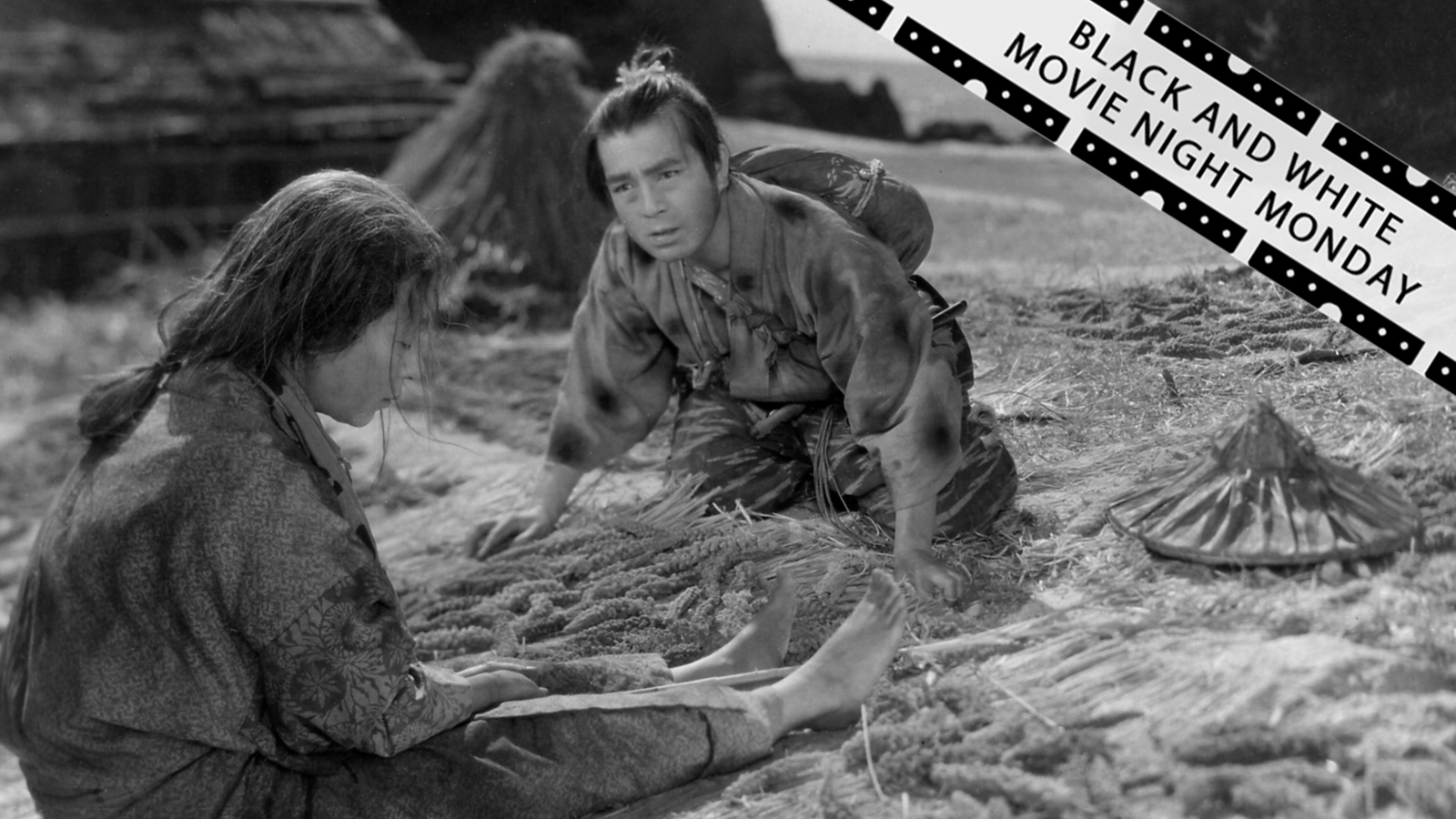
Sansho the Bailiff is a film full of emotion. Not completely melodramatic or over-the-top, but true emotion that sits within the very essence of the story. Helmed by one of Japan’s master filmmakers, Kenji Mizoguchi, many consider this film to be his masterpiece (although there’s a case to be made about many of his later films being his very best). Whatever your take is, there’s no denying that the filmmaking here demonstrates a master at work. Through his unassuming camera with perfectly framed compositions, to his actor’s commitment, and his deep personal connection to the story, all of it comes together to provide a powerful and haunting experience.
Based on a classic folk tale, the film follows a mother, Tamaki, forced to flee with her two children after her husband, a local administrator, is exiled for his mercy towards the people by the powerful Sansho the bailiff. On their travels, Tamaki is split apart from her daughter, Anju, and her son, Zushio, when they are betrayed and sold into slavery. The children find themselves under the service of none other that Sansho the Bailiff. Although the character of Sansho gives us the film’s title, he himself is not the center of the story, but merely acts as an example of cruelty and oppression faced by the people of Japan in this time period. In their difficult circumstance, Anju and Zushio adopt new names, and thus a new identity. Throughout this, they hold on to their father’s teachings, “A man is not a human without mercy.” Then, the story jumps forward 10 years and hope is suddenly reignited by Anju (now named Shinobu) when she hears a new slave singing a tune from a distant island with lyrcis that contain her and her brothers old names, “Anju. Zushio.” It’s an immensely powerful scene with beautiful staging, as the camera lingers on Anju’s face as the realization slowly hits her, and her purpose for life slowly reignited. We learn through other scenes that their mother, Tamaki was forced into a brothel to survive, and she has been desperately seeking her children since. With this revelation, they know that their mother is alive, and Anju begins to plan a possible escape, in hopes of reuniting their family. Zushio, however, has adapted to his surroundings in a much different way, and does not share his younger sister’s optimism, instead becoming cold, preferring to stay on the bailiff’s good side in order to survive. He has even assisted the bailiff himself in the cruel act of branding an old man who attempted to flee. The teachings of their father speaking of mercy have no place in Sansho’s land. I won’t give away too much else that happens after, in risk of ruining the experience. But the film unfolds in an unpredictable way that brings about mixed emotions of both fulfillment and soul-crushing disappointment.
Anyone familiar with Mizoguchi knows that this film is very personal to him; and it clearly shows. Growing up in poverty, Mizoguchi shared in the tragedy that many of his characters in this film experience themselves, with him being split apart from members of his family and witnessing his older sister being sold as a geisha. The heartbreak and lament we see on screen is not just a story, but it’s his story, which adds a powerful depth of autobiography to the telling of it. I often say that when a film is personal to a filmmaker, it shines through in an indescribable way, as if every creative decision is rooted in instincts and emotions that are fueled by deep experiences and revelations that mirror those on-screen. I believe that it’s hard to find a filmmaker who creates at a more personal level than Mizoguchi does here. His critique of the Japanese treatment of women and societal burdens on the poor comes from a place of pain, understanding and empathy that creates a strong adaptation of the source material and story.
Sansho the Bailiff is a powerful film, meant to be experienced and felt rather than dissected for filmmaking techniques (although it is rich in filmmaking lessons). It’s a film about mercy, freedom, and hope that plays out like an intimate epic, covering years of life but never straying from the strong emotions of the characters. It’s powerful and haunting, and is not always easy to watch. But if there’s one thing that can be learned from Sansho, it’s that oppression can be overcome, but the laments and scars may never disappear. I like the words of the film critic, Anthony Lane, who wrote, “I have seen ‘Sansho’ only once, a decade ago, emerging from the cinema a broken man but calm in my conviction that I had never seen anything better; I have not dared watch it again, reluctant to ruin the spell, but also because the human heart was not designed to weather such an ordeal.” If that doesn’t speak to the power of cinema, I don’t know what does.
